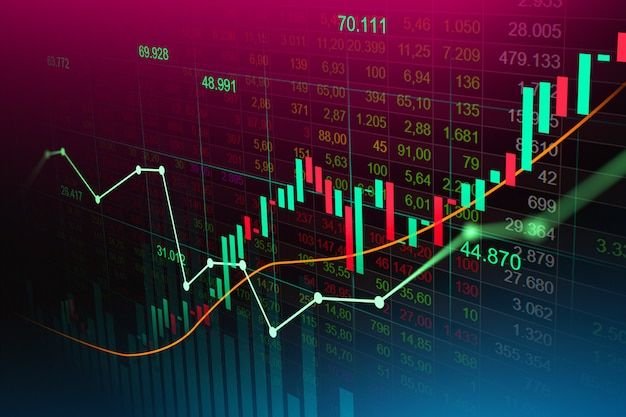In recent days, Shiba Inu (SHIB) has faced a notable decline in its price, reflecting a broader sell-off across the cryptocurrency market. This downturn has caused significant distress among investors, particularly those holding long positions in SHIB. Several factors have contributed to this decline, including the sustained pressure on Bitcoin (BTC), the looming Mt. Gox repayments, and the selling activities of large investors known as whales and sharks. This article delves into these elements and their impact on SHIB’s market performance, providing a comprehensive overview in simple English.
Bitcoin’s Influence
Bitcoin’s role in the cryptocurrency market is akin to that of a bellwether. Its price movements often set the tone for the entire market. On July 4, Bitcoin experienced a massive sell-off, resulting in a 5% drop in its value. This decline has had a cascading effect on other cryptocurrencies, including SHIB.
The sell-off in Bitcoin has been attributed to several factors, including macroeconomic uncertainties and investor sentiment. When Bitcoin’s price falls significantly, it typically triggers a domino effect, causing panic among investors and leading to broader market sell-offs. This phenomenon was evident as the price of SHIB and other altcoins plummeted following Bitcoin’s drop below the $55,000 mark.
Mt. Gox Repayments
Another factor unsettling the market is the anticipated repayments from the Mt. Gox trustee. Arkham Intelligence, a blockchain intelligence platform, reported that the trustee had initiated test transactions as part of preparations for these repayments. This development has introduced additional anxiety among investors.
Mt. Gox, once the largest Bitcoin exchange, collapsed in 2014 after a massive hack resulted in the loss of 850,000 BTC. The trustee now holds approximately 47,228 BTC, worth about $2.7 billion, which is set to be distributed to creditors. This impending distribution has stoked fears of increased selling pressure, as recipients may choose to liquidate their holdings, further depressing Bitcoin’s price.
The market’s reaction to these repayments has been significant. Investors are concerned that the influx of BTC into the market could exacerbate the existing sell-off, leading to further declines in Bitcoin’s price and, by extension, other cryptocurrencies such as SHIB.
Impact on SHIB Holders
The decline in SHIB’s price has resulted in substantial losses for investors holding long positions. Long positions are buy orders placed by investors who anticipate that the price will increase over time. When the price falls below certain support levels, these positions are automatically liquidated to prevent further losses.
Many investors had placed long positions on SHIB, expecting the price to hold above key support levels such as $0.000015 and $0.000014. However, as SHIB’s price breached these levels, automatic liquidations were triggered. According to Coinglass, a crypto derivatives platform, SHIB liquidations exceeded $1.6 million in one morning alone, with over 95% of these liquidations stemming from long positions. This represents the highest daily total for SHIB long liquidations in the past four months.
Although the liquidation figures for SHIB are significant, they are relatively modest compared to the broader market. In the past 24 hours, total SHIB liquidations amounted to $2.31 million, accounting for just 0.3% of the total market liquidations, which were valued at $679 million. In comparison, Bitcoin saw the highest liquidation figure at $226.94 million, followed by Ethereum at $166.48 million.
Additional Factors Affecting SHIB
In addition to the pressures from Bitcoin’s decline and the Mt. Gox repayments, SHIB is facing selling pressure from large investors, commonly referred to as whales and sharks. These are entities that hold significant amounts of cryptocurrency and whose trading activities can influence market prices.
Santiment, an on-chain data analytics platform, has indicated a gradual decrease in the holdings of wallets containing between 10 million and 1 billion SHIB since the beginning of June. This trend suggests that these larger investors have been offloading their SHIB holdings, contributing to the downward pressure on its price.
The behavior of these large investors is crucial in understanding market dynamics. When whales and sharks decide to sell their holdings, it often signals a lack of confidence in the asset’s short-term prospects. This can trigger a broader selling trend among smaller investors, amplifying the price decline.
Market Sentiment and Investor Reactions
Market sentiment plays a vital role in the performance of cryptocurrencies. The recent developments have undoubtedly shaken the confidence of many SHIB investors. Despite expert recommendations that SHIB is a good long-term investment, the current downturn has prompted some to reconsider their positions.
The cryptocurrency market is known for its volatility, and price fluctuations can be extreme. While long-term investors might be more resilient to these swings, short-term traders can be significantly impacted. The recent liquidation events underscore the importance of having a well-thought-out investment strategy and being prepared for market volatility.
Looking Ahead
Despite the current challenges, the long-term prospects for SHIB and the broader cryptocurrency market remain positive. The factors driving the recent downturn are temporary, and the market is likely to stabilize once these issues are resolved.
For SHIB, the key will be to regain investor confidence. This can be achieved through positive developments such as new partnerships, increased adoption, and advancements in the project’s roadmap. Additionally, a stabilization in Bitcoin’s price would help restore some normalcy to the market.
Conclusion
The recent decline in Shiba Inu’s price is a reflection of broader market dynamics influenced by Bitcoin’s sell-off, the looming Mt. Gox repayments, and selling pressure from large investors. These factors have resulted in significant liquidations for SHIB holders, particularly those with long positions.
While the current situation is challenging, it is not without precedent in the volatile world of cryptocurrencies. Investors must navigate these periods with caution and focus on long-term prospects. As the market adjusts to these developments, there is potential for recovery and growth.
Ultimately, the resilience of the SHIB community and the broader market will be tested, but the fundamentals that have driven interest in cryptocurrencies remain strong. By understanding the factors at play and maintaining a balanced investment approach, investors can better weather the storms of market volatility and position themselves for future opportunities.
ALSO READ: Cryptocurrency Recovery Specialists: How to Get Your Funds Back




